The Ultimate Self-Care Guide For Better Sleep

What Is Self-Care For Better Sleep?
The self-care guide for better sleep signifies a deliberate commitment to nurturing your well-being by adopting practices and habits that enhance the quality of your sleep.
It involves creating a nightly routine that promotes relaxation and signals to your body that it’s time to unwind. This can include activities such as reading, engaging in gentle stretches, or practicing relaxation techniques.
Self-care for better sleep also encompasses making mindful choices throughout the day, such as limiting screen time before bed, managing stress through mindfulness or meditation, and avoiding heavy meals or caffeine close to bedtime.
This self-care guide for better sleep entails crafting a sleep-conducive environment, optimizing factors like comfortable bedding, a calm atmosphere, and ideal room temperature.
By prioritizing self-care for better sleep, you acknowledge the importance of restful slumber in supporting your physical, mental, and emotional well-being, ultimately leading to more vibrant and energized days, and a leveled-up life.
This self-care guide for better sleep will help level up your sleep and life!
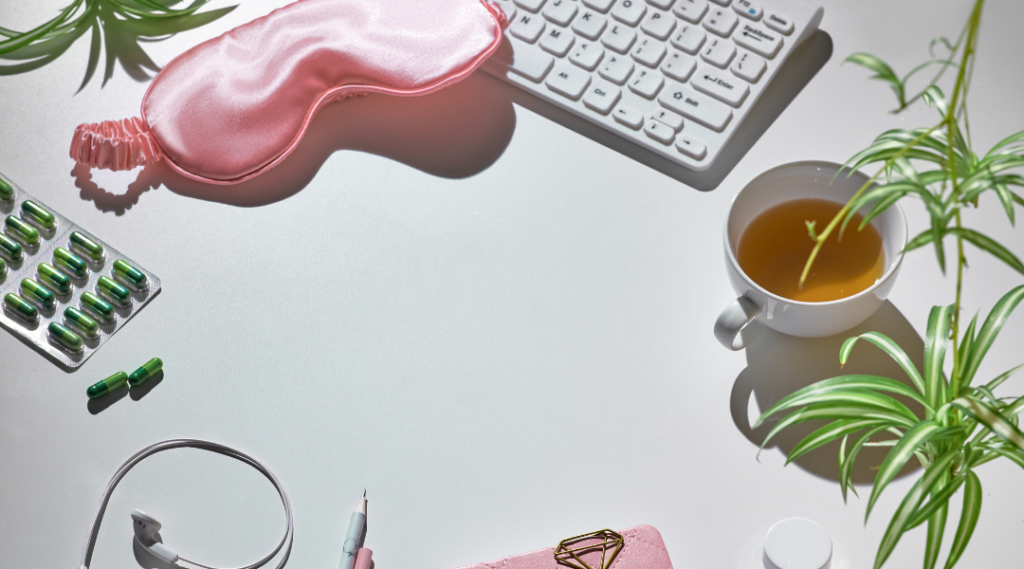
Why Is Sleep So Important?
Sleep is crucial because it serves as a cornerstone of overall health and well-being. During sleep, the body engages in vital processes such as physical restoration, cognitive consolidation, and immune system reinforcement. It supports memory formation, emotional resilience, and efficient decision-making.
Sleep regulates hormones, including those responsible for appetite and stress response, impacting weight management and cardiovascular health. It contributes to cellular repair, inflammation reduction, and even waste removal from the brain.
A lack of sleep disrupts these processes, leading to increased risks of chronic conditions, emotional instability, impaired cognitive function, and reduced overall quality of life.
In short, sleep is a non-negotiable necessity that optimizes physical, mental, and emotional health, enabling us to thrive and lead fulfilling lives. Practicing self-care can greatly contribute to better sleep quality.
Below are 20 self-care strategies specifically aimed at improving your sleep.
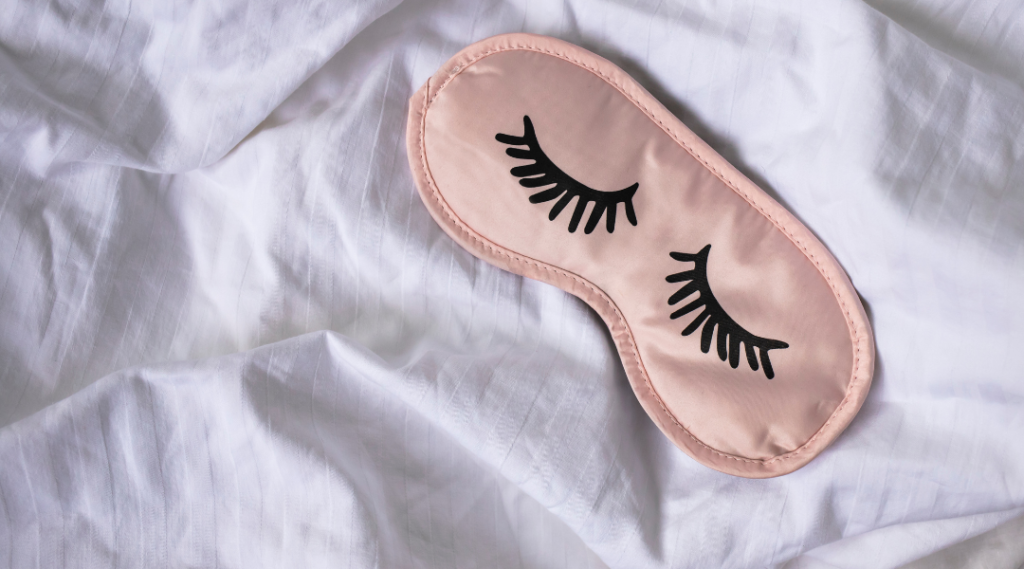
The Ultimate Self-Care Guide For Better Sleep
1. Establish a Bedtime Routine
Create a relaxing pre-sleep routine that signals to your body that it’s time to wind down. This could include activities like reading a book, taking a warm bath, or practicing gentle stretches.
2. Limit Screen Time Before Bed
The blue light emitted by screens can interfere with melatonin production, making it harder to fall asleep. Aim to reduce screen exposure at least an hour before bedtime. Screens emit blue light, which can suppress the production of melatonin, a hormone that regulates sleep-wake cycles. Reduced melatonin levels can make it harder to fall asleep and can disrupt your circadian rhythm.
3. Mindfulness and Relaxation Techniques
Engage in practices like deep breathing, meditation, or progressive muscle relaxation to calm your mind and reduce stress before sleep. Mindfulness and relaxation techniques can reduce feelings of anxiety and restlessness that might otherwise keep you awake or disrupt your sleep throughout the night.
Mindfulness Activity To Try Out: Adult Coloring
Adult coloring, also known as art therapy coloring or adult color therapy, is a creative and relaxing activity that involves coloring intricate designs, patterns, or illustrations using colored pencils, markers, or other coloring mediums (gel pens, markers, etc).
Adult coloring has been known to promote relaxation, reduce stress, and enhance overall well-being. These therapeutic benefits help us to engage in a focused, meditative state, acting as a perfect nighttime activity to promote better sleep.
This blog post will tell you 20 amazing benefits of adult coloring and has 13 pages of free printables so you can start your coloring journey today!

4. Create a Comfortable Sleep Environment
Make sure your bedroom is conducive to sleep. Invest in a comfortable mattress and pillows, block out light, and maintain a comfortable temperature.
5. Watch Your Diet
Avoid heavy meals, caffeine, and alcohol close to bedtime. These can disrupt your sleep or make it harder to fall asleep. Consuming a diet high in refined sugars and carbohydrates can lead to spikes and crashes in blood sugar levels. These fluctuations can disrupt sleep and lead to nighttime awakenings. Heavy, fatty, and spicy meals close to bedtime can cause discomfort and indigestion, making it harder to fall asleep and stay asleep.
6. Stay Active During the Day
Regular physical activity can improve sleep quality. Aim for at least 30 minutes of moderate exercise most days, but avoid vigorous exercise close to bedtime. Regular physical activity helps regulate your body’s internal clock, also known as the circadian rhythm. This synchronization promotes a consistent sleep-wake cycle and makes it easier to fall asleep and wake up at desired times.
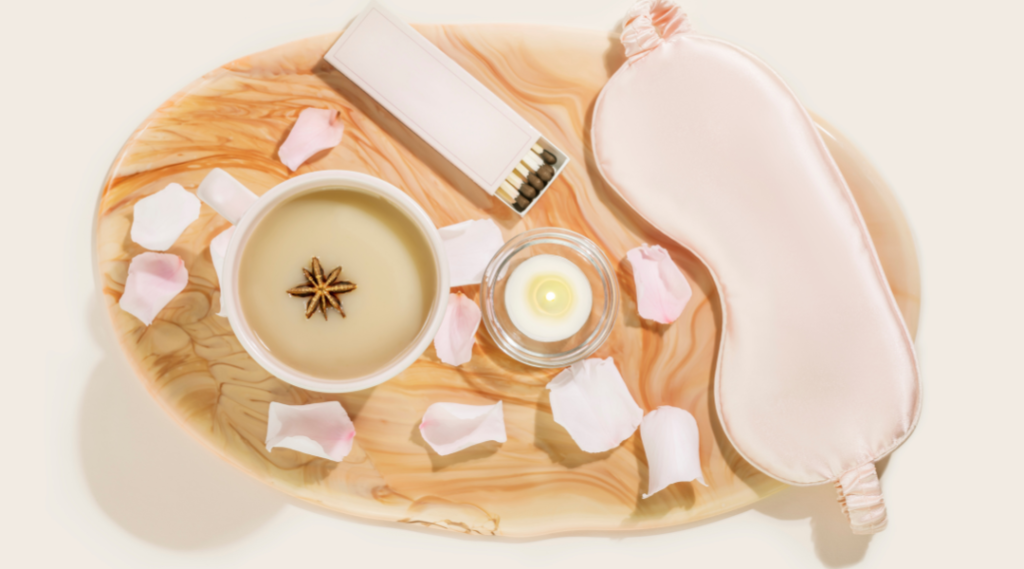
7. Manage Stress
Chronic stress can interfere with sleep which can trigger the body’s “fight or flight” response, leading to heightened alertness and physiological arousal. This hyperarousal can make it difficult to relax and fall asleep. Try to engage in stress-reduction techniques such as journaling, mindfulness, or talking to a friend or therapist.
8. Stick to a Sleep Schedule
Go to bed and wake up at the same time every day, even on weekends. Consistency helps regulate your body’s internal clock. A regular sleep schedule helps regulate your body’s internal clock, known as the circadian rhythm. This rhythm influences the timing of various physiological processes, including sleep and wakefulness. Consistency in your sleep schedule reinforces your body’s natural sleep-wake cycle.
9. Limit Naps: If you need to nap, keep it short (20-30 minutes) and avoid napping too close to bedtime. Taking a nap too close to bedtime can confuse your body’s internal clock, also known as the circadian rhythm. This may make it harder to fall asleep at your regular bedtime.
10. Create a Worry Journal
Write down any worries or tasks that might be on your mind before bed. This can help you clear your mind and reduce racing thoughts. Writing down your worries provides a structured outlet to express and organize your thoughts and concerns. This can prevent them from swirling around in your mind and disrupting your ability to relax and fall asleep.
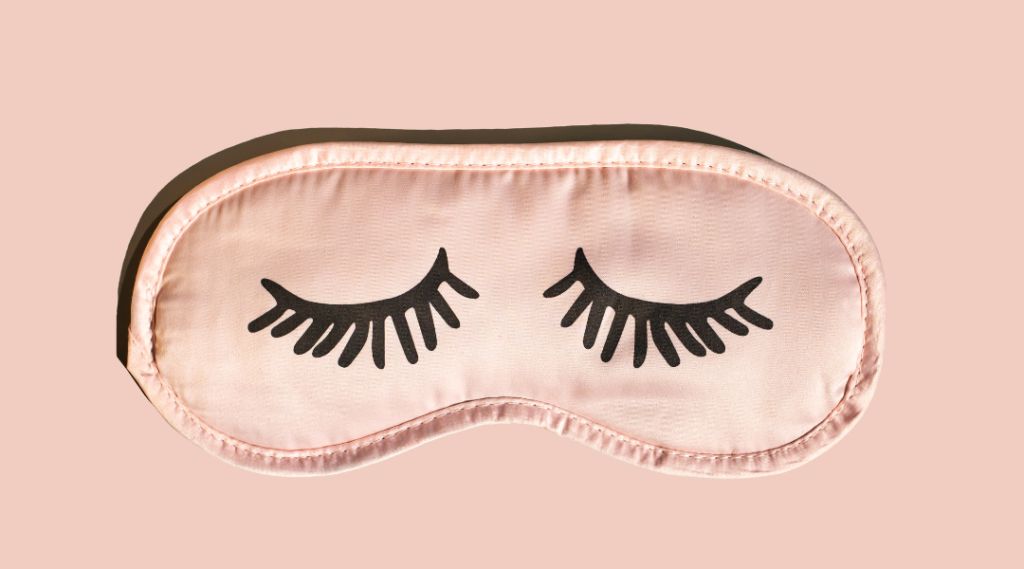
11. Herbal Teas
Some herbal teas, like chamomile or valerian root, are known for their calming properties and can promote relaxation before bedtime. Caffeine-free varieties of peppermint, passionflower, and Ginger tea can also have sleep-aiding benefits.
12. Limit Liquid Intake Before Bed
Reducing liquids before sleep can minimize the chances of nighttime awakenings for bathroom trips. Waking up multiple times during the night disrupts the natural sleep cycle, preventing you from experiencing the deep, restorative stages of sleep. This can lead to fragmented sleep and reduced sleep quality.
13. Comfortable Sleepwear
Wear comfortable and breathable sleepwear that doesn’t cause discomfort during the night. Opt for breathable and comfortable fabrics that promote airflow and regulate body temperature. Natural fibers like cotton, bamboo, and silk are often recommended for their softness and moisture-wicking properties.
14. Limit Clock Watching
Constantly checking the time can increase anxiety about sleep. Constantly checking the time can increase anxiety and stress about falling asleep. This anxiety can make it even more challenging to relax and drift off to sleep. Turn clocks away from view if needed.
15. Take Mental Health Days As Needed
Mental health days allow you to step away from work or daily responsibilities, providing an opportunity to relax, unwind, and reduce stress. Lower stress levels can positively impact your sleep quality by promoting a more calm and relaxed state of mind. Modern life often involves constant exposure to screens, information, and stimuli. Mental health days can provide a break from this overstimulation, allowing your mind to reset and prepare for more restful sleep. Be sure to read why taking mental health days are important here.
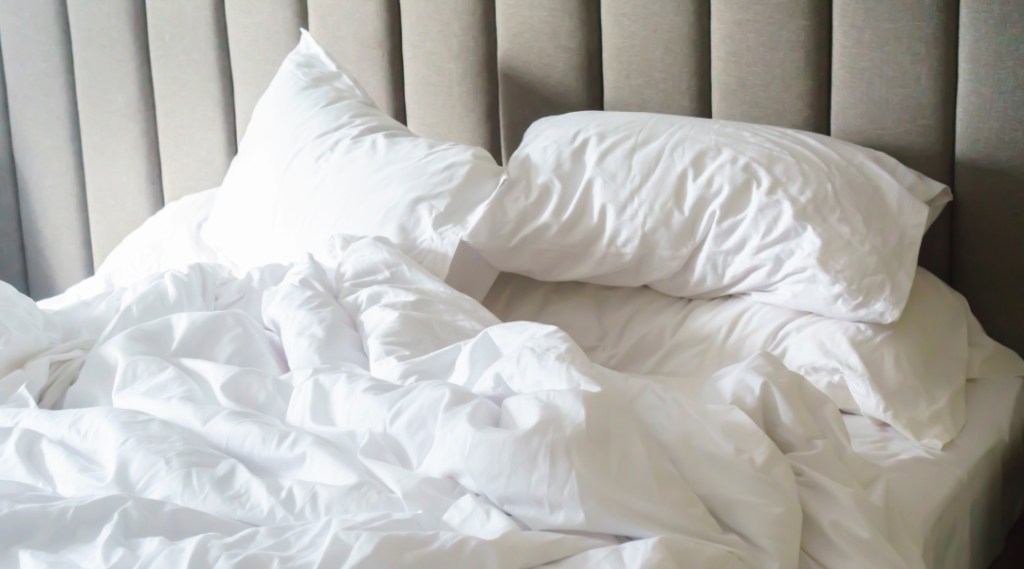
16. Listen to Calming Music
Listening to calming music can help lower cortisol levels, which are associated with stress and anxiety. This reduction in stress and anxiety can create a more conducive environment for falling asleep. Calming music has the ability to trigger the relaxation response in the body, slowing down the heart rate, reducing muscle tension, and promoting an overall sense of calm. This physiological response prepares the body for sleep.
17. Sleep Masks
Sleep masks are especially helpful if you’re sleeping in an environment with excess light, such as from streetlights, electronics, or early morning sunlight. Blocking out light can help signal to your body that it’s time to sleep. Melatonin, a hormone that regulates sleep-wake cycles, is produced in response to darkness. Using a sleep mask can help enhance melatonin production and support a more natural sleep-wake cycle.
- Choose a mask that fits comfortably and securely without putting pressure on your eyes.
- Opt for a mask made from breathable and soft materials that won’t cause irritation.
18. Earplugs
Earplugs are designed to block or muffle sounds, which can be particularly helpful if you’re trying to sleep in a noisy environment. They can help you create a quieter and more peaceful sleep environment. Noise disruptions can hinder relaxation and make it difficult to fall asleep or stay asleep. By reducing or eliminating noise, earplugs can promote a more relaxed state of mind that supports better sleep.
- Select earplugs that fit comfortably and securely in your ears without causing discomfort or irritation.
- Clean and sanitize your earplugs regularly to prevent the buildup of bacteria and maintain ear health.
19. Essential Oils
Essential oils have been used for their potential to promote relaxation and improve sleep for centuries. While the effects of essential oils can vary from person to person, many individuals find them helpful in creating a calming and soothing environment that supports better sleep.
- Lavender: Lavender is perhaps the most well-known essential oil for sleep. It’s believed to have sedative effects and can help reduce anxiety and promote relaxation. The scent of lavender is often associated with tranquility and can contribute to a peaceful bedtime routine.
- Chamomile: Chamomile essential oil has anti-anxiety and sedative properties, making it useful for promoting relaxation and better sleep. It’s often used to create a calming atmosphere.
- Valerian: Valerian root is known for its potential to improve sleep quality and reduce insomnia. Valerian essential oil may have similar effects, helping to calm the nervous system and induce sleepiness.
20. Read a Book
Reading can divert your attention away from the worries and stresses of the day, helping to quiet your mind and reduce anxiety. Engaging with a book can create a mental escape, allowing you to focus on the content rather than your racing thoughts. Reading a physical book is a screen-free activity, which is important for promoting sleep as well.
Not sure what to read? Check out this list of self-care books that focus on mental and emotional self-care!

Conclusion
In conclusion, this self-care guide for better sleep is a powerful testament to the significant impact that small but intentional choices can have on our overall well-being.
By embracing practices that prioritize relaxation, limit disruptions, and create a soothing sleep environment, we pave the way for rejuvenating rest and improved sleep quality. This holistic approach to self-care recognizes that taking care of our bodies and minds extends to the realm of sleep, a fundamental pillar of health.
As we cultivate habits that honor our need for rest, we empower ourselves to awaken each day with renewed vitality and a deep sense of connection to our own self-care journey.
This self-care guide for better sleep helps one to acknowledge the value of quality sleep and weaving it into our self-care routine, we embark on a path toward greater balance, resilience, and flourishing in our daily lives for a leveled-up experience.
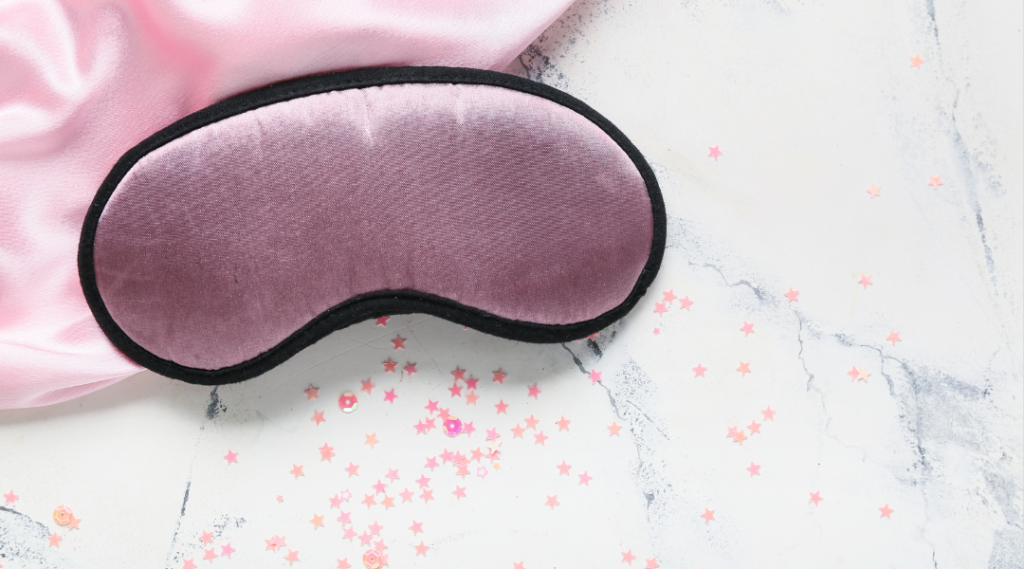
Did you like this self-care guide for better sleep? Be sure to check out these 5 Beauty Tips to Level Up Your Night-Time Routine or 100 Ways To Improve Your Self-Care Habits.
Want to learn more about sleep? The Better Sleep Council provides further information and educational resources to better understand the relationship between sleep, health, and quality of life.